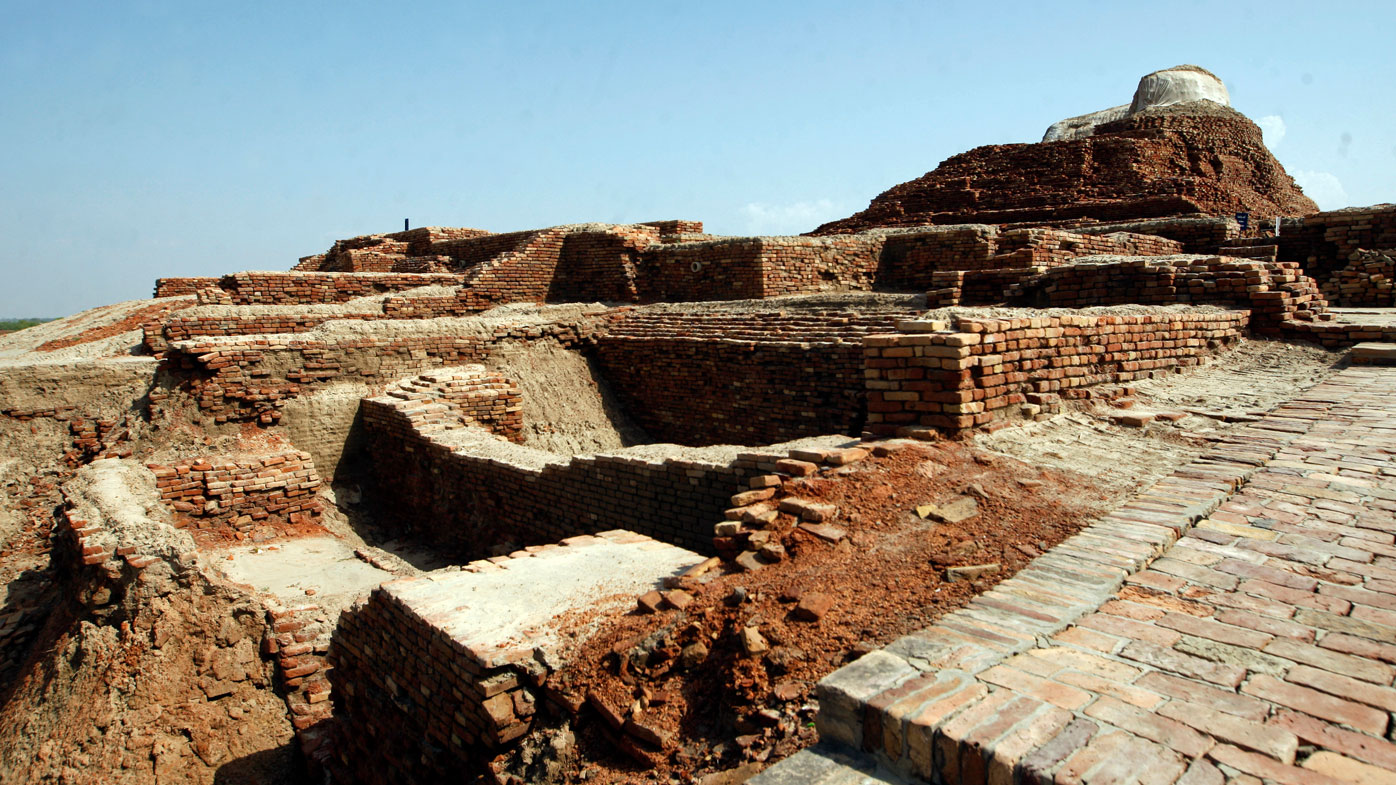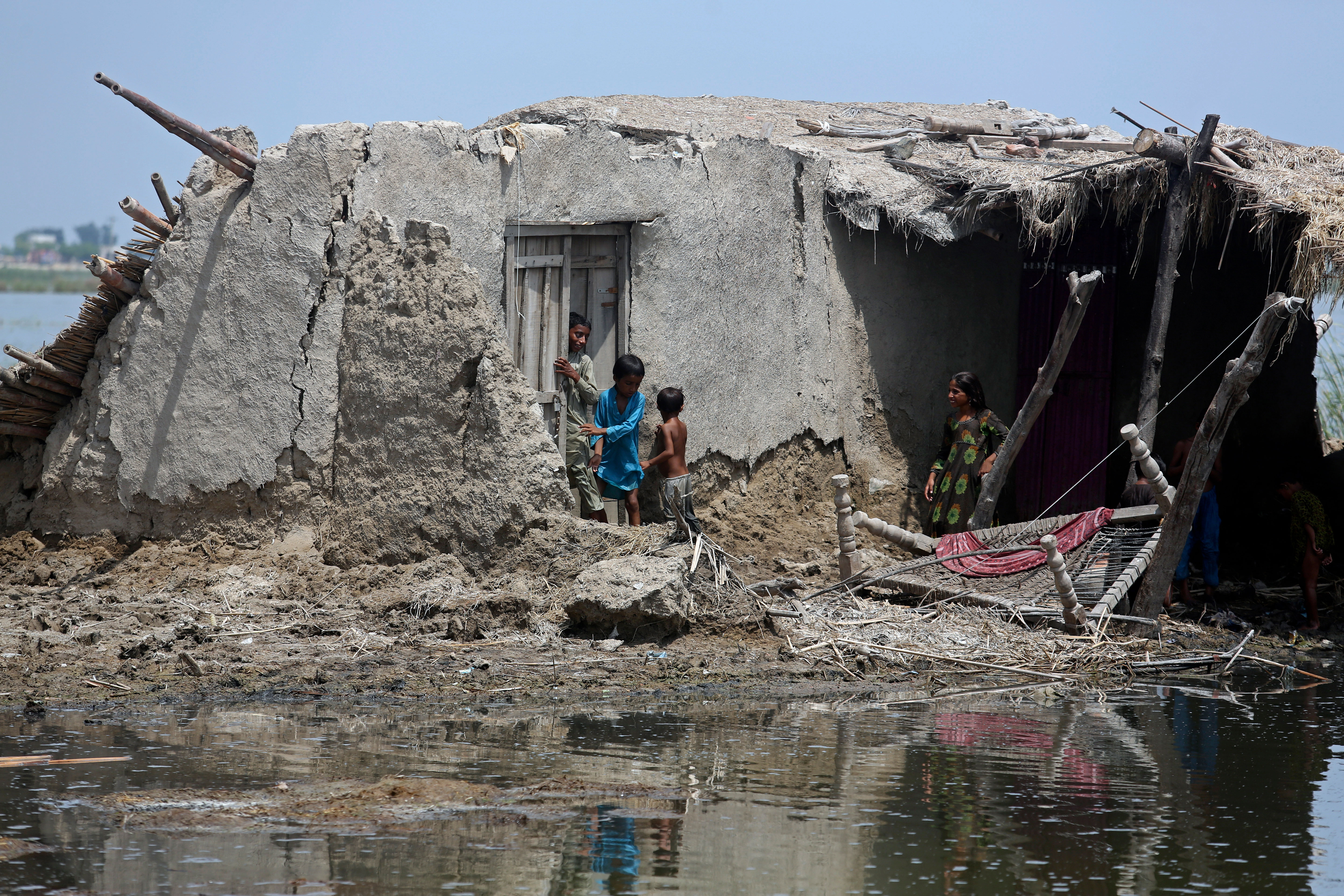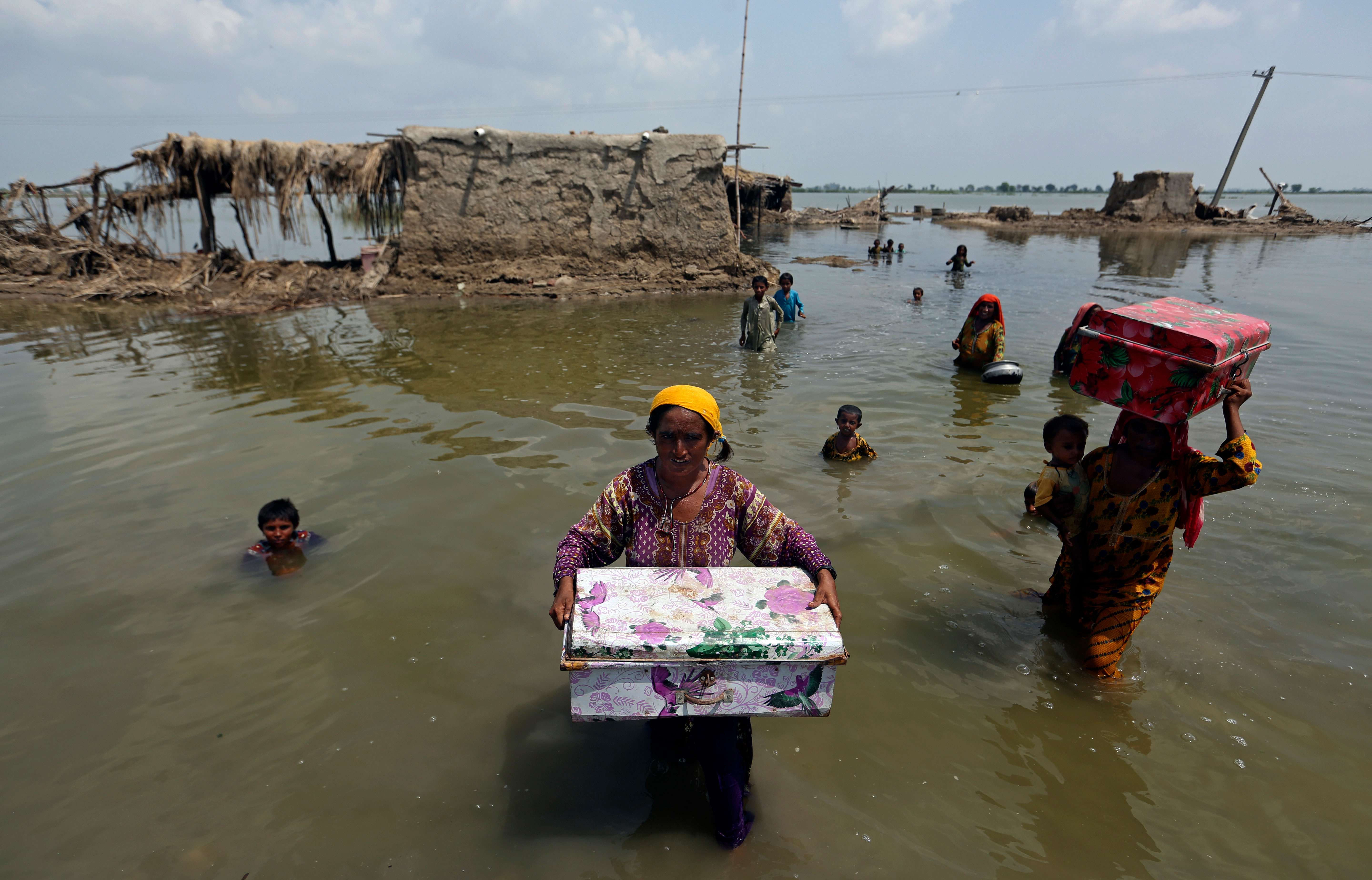In flood-stricken Pakistan where an unprecedented monsoon season has killed hundreds of people, the rains now threaten a famed archeological site dating back 4500 years.
The ruins of Mohenjo Daro - located in southern Sindh province near the Indus River and a UNESCO World Heritage Site - are considered among the best preserved urban settlements in South Asia.
They were discovered in 1922 and to this day, mystery surrounds the disappearance of its civilisation, which coincided with those of ancient Egypt and Mesopotamia.
READ MORE: Driver arrested after five teens die in ute crash south-west of Sydney

The swelling waters of the Indus, a major river in this part of the world, have wreaked havoc as heavy rains and massive flooding unleashed devastation across much of Pakistan.
At least 1343 people have been killed and millions have lost their homes in the surging waters, with many experts blaming the unusually heavy monsoon rains on climate change.
The flooding has not directly hit Mohenjo Daro but the record-breaking rains have inflicted damage on the ruins of the ancient city, said Ahsan Abbasi, the site's curator.
“Several big walls, which were built nearly 5000 years ago, have collapsed because of the monsoon rains," Abbasi told The Associated Press.
He said dozens of construction workers under the supervision of archaeologists have started the repair work.
Abbasi did not give an estimated cost of the damages at Mohenjo Daro.
The site's landmark “Buddhist stupa" — a large hemispherical structure associated with worship, meditation and burial — remains intact, Abbasi said.
But the downpour has damaged some outer walls and also some larger walls separating individual rooms or chambers.
Abbasi said the civilisation at Mohenjo Daro, also known as “Mound of the Dead" in the local Sindhi language, built an elaborate drainage system, which has been critical in flooding in the past.
Though the floods have touched all of Pakistan, the Sindh province has been among the worst hit.
READ MORE: Police surround house in search for Canada mass stabbing suspect

READ MORE: Why China is still locking down entire cities
On Monday, army engineers made a second cut into an embankment at Lake Manchar, Pakistan's largest freshwater lake, to release rising waters in hopes of saving the nearby city of Sehwan from major flooding.
The water from the lake has already inundated dozens of nearby villages, forcing hundreds of families to leave their mudbrick homes in a hurry, many fleeing in panic.
Meanwhile, rescue operations continued yesterday with troops and volunteers using helicopters and boats to get those stranded out of the flooded areas and to nearest relief camps.
Tens of thousands of people are already living in such camps, and thousands more have taken shelter on roadsides on higher ground.
Ghulam Sabir, 52, from the outskirts of Sehwan, said that he left his home three days ago after authorities told them to evacuate.
“I took my family members with me and came to this ... safer place," said Sabir, staying by the roadside where he has set up camp.
He echoed complaints of several other villagers — that no government help had reached them yet.
Sabir said he did not know whether his home had collapsed or not.
READ MORE: Three rescued dolphins swim free from Indonesia sanctuary

READ MORE: Russia to buy rockets, artillery shells from North Korea: US
Prime Minister Shahbaz Sharif urged Pakistanis in televised remarks to generously donate to flood victims, most of whom are relying on government help to survive.
Sharif has also repeatedly asked the international community to send more aid to the flood victims.
He insisted that Pakistan is facing a climate-change-induced tragedy.
In a statement yesterday, the UN refugee agency said it handed over thousands of tents and other emergency items to the Sindh government, meant for those affected by the flooded areas in the province.
Multiple experts say that since 1959, Pakistan has emitted about 0.4 per cent of heat-trapping carbon dioxide, compared to 21.5 per cent by the United States and 16.4 per cent by China.
Last week, UN Secretary-General Antonio Guterres also called on the world to stop “sleepwalking” through the crisis.
He plans to visit flood-hit areas on September 9.
According to Pakistani officials, Guterres will travel to Sindh but it's unclear whether he will visit the archaeological site.
READ MORE: DNA analysis solves mystery of bodies found at bottom of medieval well
